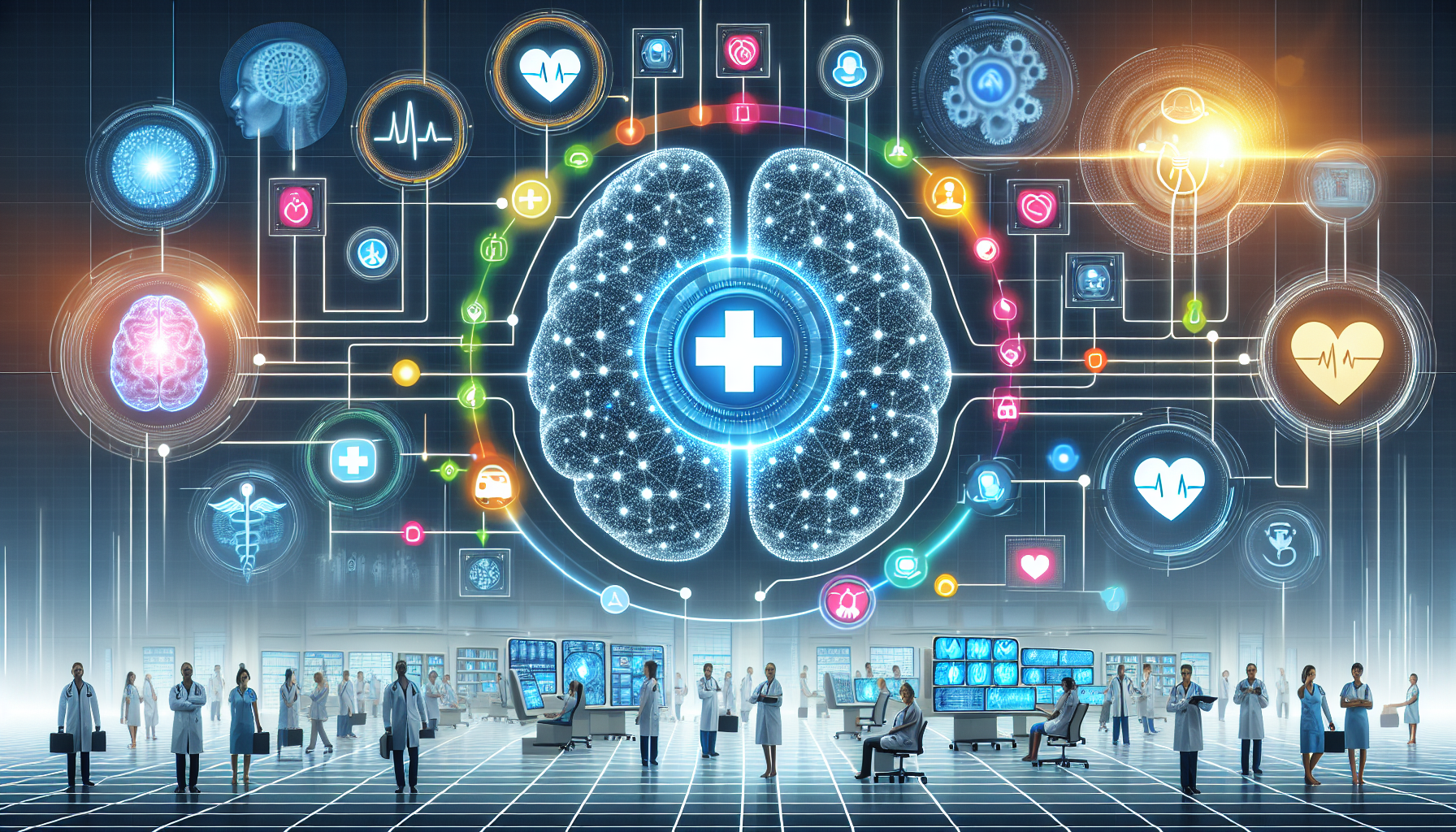Understanding AI in Healthcare
Artificial Intelligence (AI) has become an integral part of various industries, with healthcare leading the way in harnessing its potential. AI technologies are transforming how medical professionals diagnose, treat, and manage patient care, resulting in improved outcomes and operational efficiency.
The Role of AI in Clinical Diagnostics
AI solutions assist clinicians by analyzing vast amounts of data, including medical records, lab results, and imaging studies. Machine learning algorithms can identify patterns and correlations in data that might escape human notice. For instance, AI systems like IBM Watson have made strides in analyzing cancer treatment options by evaluating medical literature and clinical trials. Studies have shown that AI can match or even outperform human specialists in specific diagnostic tasks, such as identifying tumors in radiology images.
Enhancing Personalized Medicine
Personalized medicine involves tailoring treatments based on individual patient characteristics. AI algorithms can help identify the most effective treatment options for specific genetic profiles. For example, AI can analyze genomic data to predict patient responses to particular therapies, facilitating personalized treatment plans. This approach can significantly enhance treatment efficacy while minimizing adverse effects, thereby streamlining patient care.
AI-Driven Predictive Analytics
AI excels at predictive analytics, allowing healthcare providers to forecast patient outcomes. By utilizing historical data, algorithms can predict disease progression, readmission rates, and patient deterioration. This capability enables healthcare providers to intervene sooner, reducing the risk of complications and improving patient outcomes. For instance, hospitals can use AI to identify patients at risk of sepsis, allowing for prompt intervention that can save lives.
Streamlining Administrative Processes
Administrative tasks in healthcare, such as scheduling, billing, and record management, consume significant time and resources. AI technologies can automate these processes, leading to enhanced operational efficiency. Chatbots, for instance, can manage appointment scheduling and follow-up reminders, freeing healthcare workers to focus on patient care. Natural language processing (NLP) can help automate the sorting and tagging of medical records, making it easier for clinicians to access relevant information quickly.
Enhancing Telemedicine With AI
Telemedicine has gained prominence in recent years, and AI is enhancing its effectiveness. AI tools help assess patient data in real-time during virtual consultations, providing clinicians with valuable insights. AI-driven platforms can analyze a patient’s voice, facial expressions, and other non-verbal cues, offering insights into their mental state. As studies show, combining AI with telehealth improves diagnostic accuracy and patient satisfaction.
AI in Drug Development
The drug discovery process is lengthy and expensive, often taking over a decade and billions of dollars to bring a new drug to market. AI can expedite this process by predicting how different compounds will interact and which compounds will be the most effective. For instance, companies like Atomwise use AI to analyze chemical compounds and predict their effectiveness in treating various diseases, shattering traditional timelines for drug discovery.
Robotic Surgery and AI Integration
Robotic-assisted surgery has emerged as a game-changer in surgical procedures. AI enhances the precision of robotic systems, allowing surgeons to perform complex operations with greater accuracy. AI algorithms can analyze data from previous surgeries to assist in planning surgical approaches, leading to better outcomes. The integration of AI into robotic systems allows for real-time feedback and adjustments, ultimately improving patient safety and recovery times.
AI-Powered Patient Monitoring Systems
Continuous patient monitoring is crucial in healthcare settings, particularly in critical care. AI-powered monitoring systems can analyze data from various medical devices to detect abnormalities in real-time. These systems alert healthcare providers about significant changes in heart rate, blood pressure, or other vital signs, enabling timely interventions. Integrating AI into wearable devices allows patients to be monitored remotely, supporting early detection of potential health concerns.
Empowering Healthcare Professionals
AI tools serve as an augmentation to healthcare professionals rather than a replacement. By automating routine tasks and providing valuable insights, AI enables clinicians to devote more time to patient care. This support results in a more effective healthcare delivery model and enhances job satisfaction among healthcare workers. AI education programs for healthcare professionals ensure they are equipped to leverage these technologies effectively.
Data Security and Privacy Concerns
The integration of AI in healthcare raises important questions regarding data security and patient privacy. Ensuring that AI systems comply with regulations such as HIPAA is critical. Healthcare organizations must focus on safeguarding patient data while harnessing the potential of AI. Strategies include adopting robust encryption methods and implementing strict access controls to prevent unauthorized access.
The Future of AI in Healthcare
The future of AI in healthcare appears robust and promising. As technology evolves, the possibilities for AI applications in patient care and operational efficiency will continue to expand. Innovations such as AI-based virtual health assistants and advanced telehealth platforms hold the potential to further revolutionize healthcare delivery.
Challenges and Limitations of AI
Despite the advancements, several challenges hinder the widespread adoption of AI in healthcare. The integration of AI into existing systems can be complicated and costly. Moreover, the need for extensive training datasets poses challenges, particularly in specialized clinical areas where data may be scarce. Addressing these limitations will be critical for realizing the full potential of AI in healthcare.
Conclusion
The integration of AI in healthcare represents a paradigm shift that has the potential to enhance patient outcomes while increasing operational efficiency. Healthcare professionals and organizations must embrace these advancements, ensuring they are prepared to utilize AI effectively while addressing ethical considerations and regulatory requirements. By focusing on the synergies between AI technology and healthcare delivery, the industry can facilitate significant improvements in patient care.


